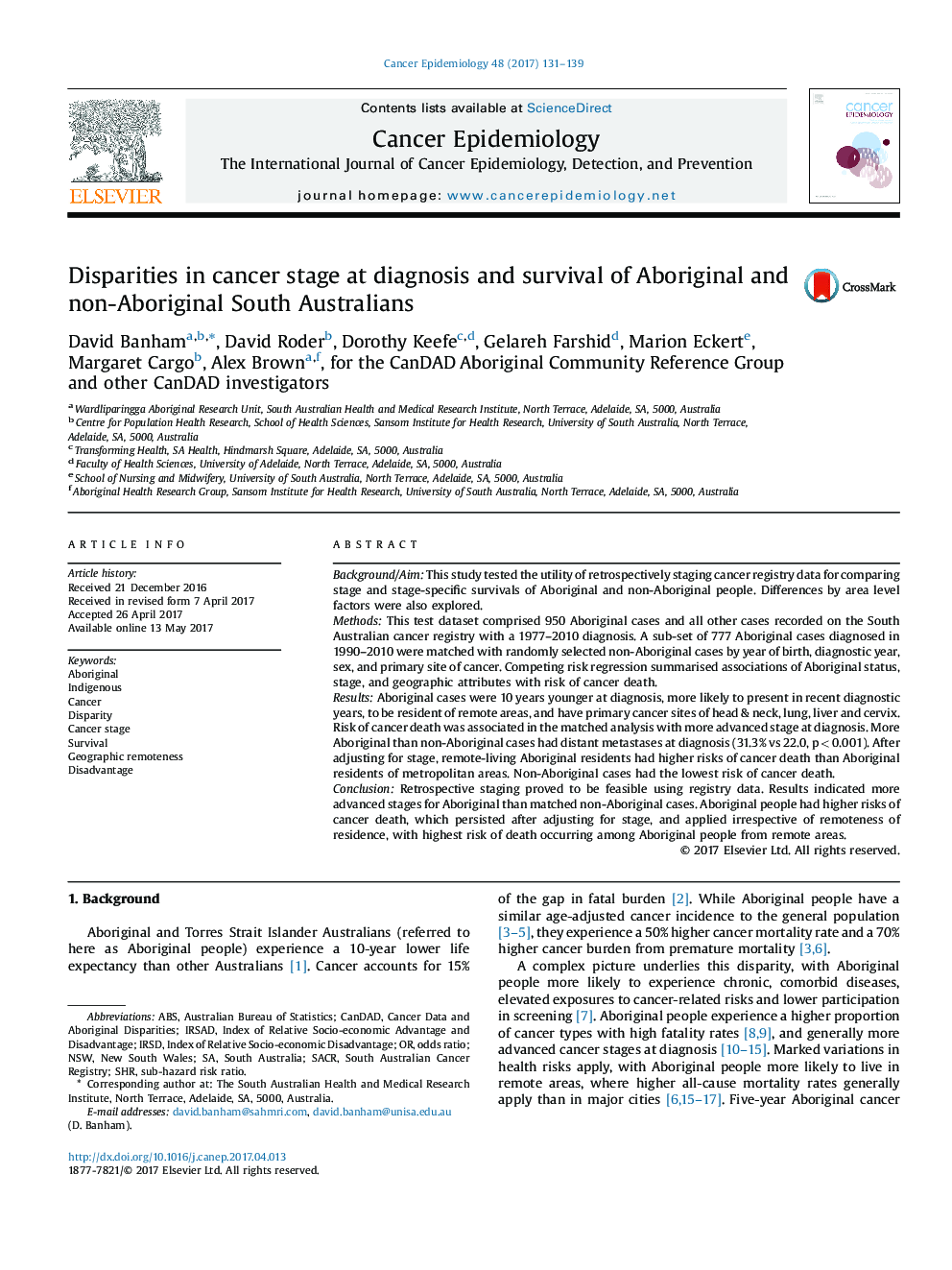| کد مقاله | کد نشریه | سال انتشار | مقاله انگلیسی | نسخه تمام متن |
|---|---|---|---|---|
| 5524880 | 1546527 | 2017 | 9 صفحه PDF | دانلود رایگان |
- Retrospective staging of cancer registry cases proved feasible and improved insight into cancer disparities.
- Risk of cancer death was associated with more advanced cancer stage at diagnosis.
- More Aboriginal cases than non-Aboriginal were diagnosed with advanced stage.
- Adjusted for stage, non-Aboriginal cases had lower risk of cancer death than Aboriginal cases.
- Among Aboriginal cases, risk of cancer death was higher in remote areas than major cities.
Background/AimThis study tested the utility of retrospectively staging cancer registry data for comparing stage and stage-specific survivals of Aboriginal and non-Aboriginal people. Differences by area level factors were also explored.MethodsThis test dataset comprised 950 Aboriginal cases and all other cases recorded on the South Australian cancer registry with a 1977-2010 diagnosis. A sub-set of 777 Aboriginal cases diagnosed in 1990-2010 were matched with randomly selected non-Aboriginal cases by year of birth, diagnostic year, sex, and primary site of cancer. Competing risk regression summarised associations of Aboriginal status, stage, and geographic attributes with risk of cancer death.ResultsAboriginal cases were 10 years younger at diagnosis, more likely to present in recent diagnostic years, to be resident of remote areas, and have primary cancer sites of head & neck, lung, liver and cervix. Risk of cancer death was associated in the matched analysis with more advanced stage at diagnosis. More Aboriginal than non-Aboriginal cases had distant metastases at diagnosis (31.3% vs 22.0, p < 0.001). After adjusting for stage, remote-living Aboriginal residents had higher risks of cancer death than Aboriginal residents of metropolitan areas. Non-Aboriginal cases had the lowest risk of cancer death.ConclusionRetrospective staging proved to be feasible using registry data. Results indicated more advanced stages for Aboriginal than matched non-Aboriginal cases. Aboriginal people had higher risks of cancer death, which persisted after adjusting for stage, and applied irrespective of remoteness of residence, with highest risk of death occurring among Aboriginal people from remote areas.
Journal: Cancer Epidemiology - Volume 48, June 2017, Pages 131-139
